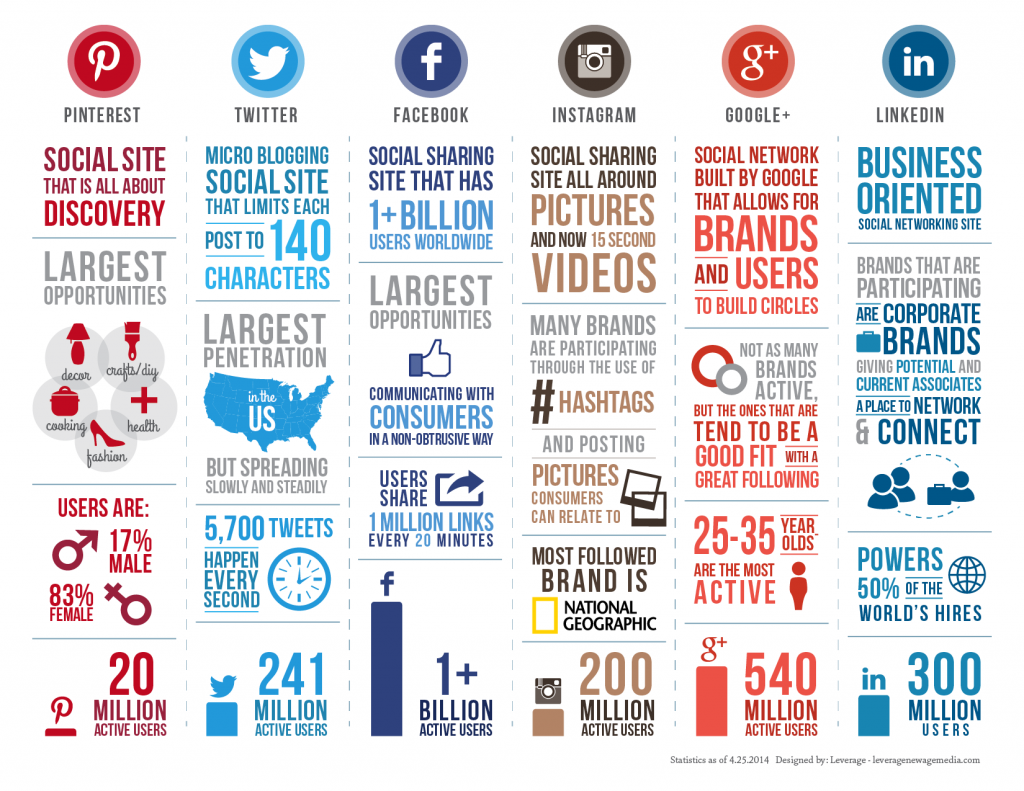When it comes to proving the ROI of social media it isn’t as hard as you might think. The key is to ensure you are tracking and collecting data effectively.
First we need to set our objectives.
What are you trying to achieve from your social media activity? Here are some typical examples:
- Lead generation
- Sales
- Retention
- Reach
- Email sign ups
- Cost reductions
Aligning activity with objectives
Once we know what we are trying to achieve we can then tailor our activity to match.
If we want to increase our reach then we will want to post content to social media that is likely to get shared. If it is customer retention we may make it our duty to stay in touch with our customers through social.
Once we know which activity matches our objective best we can then determine which platforms may best fit each activity.
Not all social media platforms will help us meet every objective. We need to analyse where our audience spends the most of its time. Ideally we will have a good idea of who our audience is through the development of customer personas.
This infographic provides an overview of the potential activity on each major social platform.
What does success look like?
If our objective is lead generation how many leads are we looking to generate? If we want to reduce costs, which costs and by how much?
We need to be specific if we want to measure ROI. This is where many businesses fall down as they are afraid to commit to a target.
Without a target you can’t see whether what you are doing is working and make any necessary adjustments. Not reaching a target shouldn’t be seen as a failure but should highlight that either the action wasn’t performed well enough, it wasn’t the right action or that ROI isn’t achievable in this case.
You then make any necessary adjustments and move on.
Keeping track
To be able to measure ROI we need to track the actions related to our objectives. The way we do this will depend on the action.
The whole point is that you want to determine whether things are working quickly so you can take action when necessary.
The first thing is to ensure that you add tracking to every URL that is part of your campaign. If you use Google Analytics you can use this tracking to trace any visits to your site as a result of your social activity that contains a link. You can download this spreadsheet that will allow you to easily add tracking to your URLs and maintain a record of them.
If you need to track clicks on a link that may are may not lead to your website, then try a URL shortener like Bit.ly which will provide basic stats. Hootsuite users can use Hootsuite’s built in shortener, and benefit from some basic statistical reporting on social activity such as Shares, Likes, Pins, Follows and ReTweets.
Social doesn’t work in isolation
Remember social media like any marketing isn’t as effective in isolation. And whilst it absolutely needs to be accounted for in terms of cost you also need to understand its strengths and weaknesses.
A great blog post may never get seen if it is not promoted, by sharing links to the post via social media you introduce it to the audience. If a sale results from someone clicking the link on a social platform and reading the post, who gets attributed the sale?
The blog post or the social media channel?
These are decisions you need make within your business. Google Analytics includes the ability to distribute attribution across channels.
So you could allocate the revenue gained from any sale in different proportions per channel. So if someone came to your site initially via Facebook, then via an email but finally made a purchase after clicking on a natural search result you could split attribution across all 3 touch points.
It can be tempting to make things complicated, but you should aim for simplicity at first.
Once you are confident you have your objectives defined and your tracking in place then you can start to look at more in-depth ROI calculations.
Need help assessing the ROI on your Social Media Marketing? Give us a call on 01379 330330
